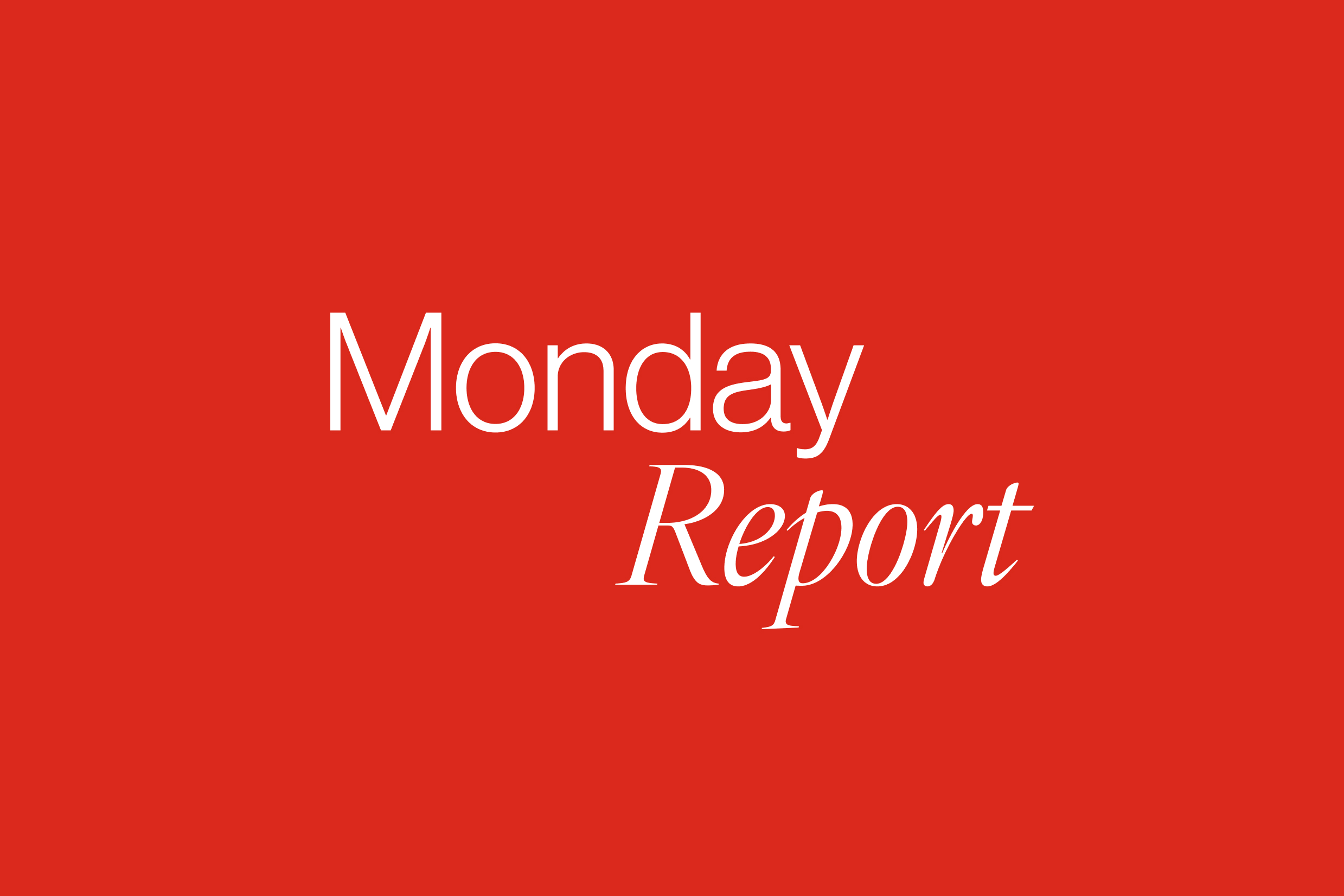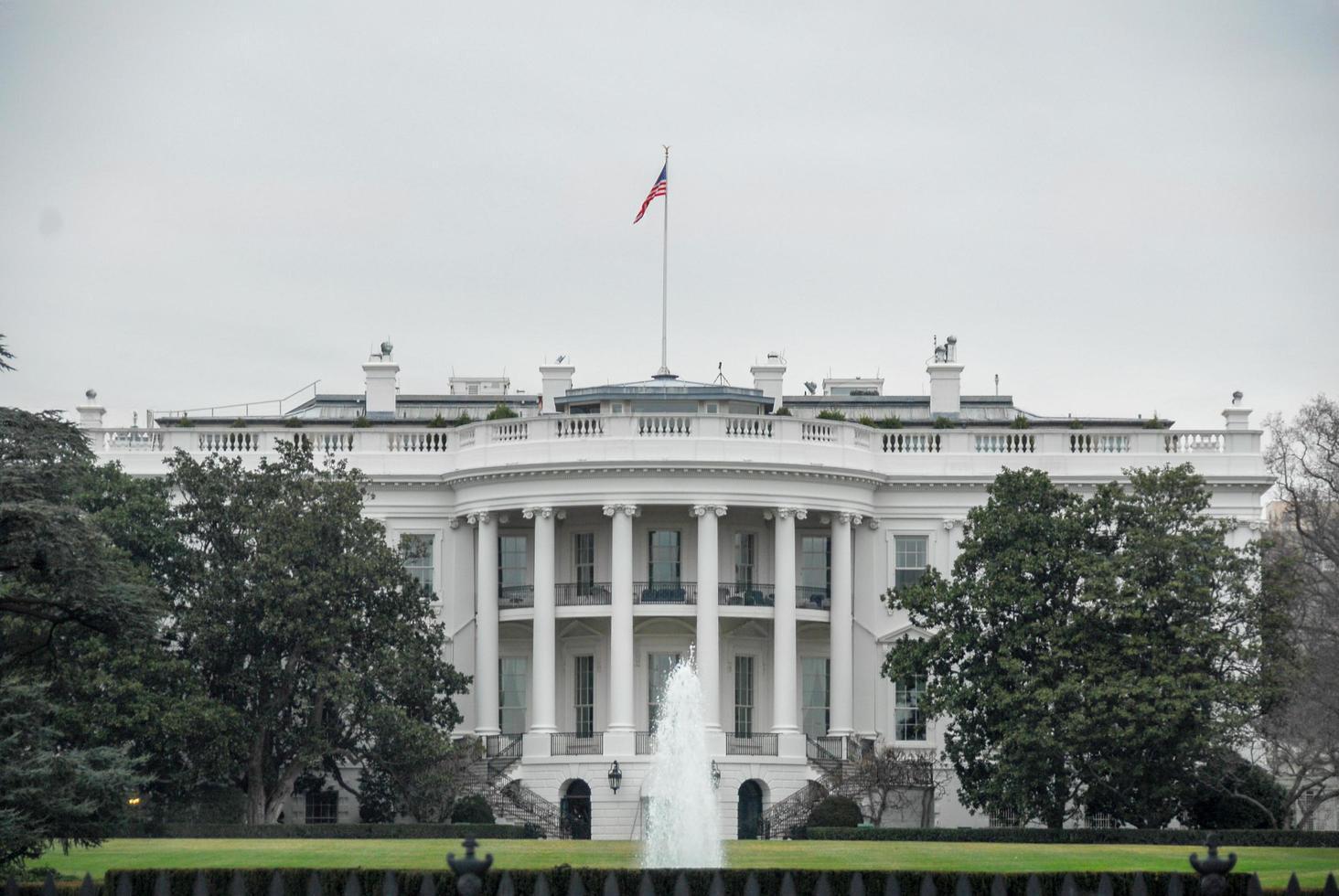Key market moves

Source: Bloomberg
Macro Overview
Americas:
Angst about high inflation, China lockdowns and a slowing US economy saw major indices in the US close down for a 7th straight week, the longest since March 2001.
Intraday, the S&P 500 hit a bear market (20% down for its Jan 3rd high) before closing flat on Friday. All the 3 indices closed down circa 3% for the week.
The biggest drag continued to be in Tech, followed by staples on disappointing earnings from Target and Walmart, and sagging consumer demand. The shift into safe haven was reflected in the UST10Y yield falling to 2.78%.
Amidst this selloff, Goldman’s strategist Kostin wrote that “A recession is not inevitable” saying that rotations within the US equity markets indicate investors are pricing elevated odds of a downturn, compared to the strength of recent economic data. The ISM as a measure Kostin said, sits at 55 which remains in growth versus implied expectations of a below 50 reading. Similar sentiment was shared by JP Morgan’s Kolanovic who also said “There will be no recession this year, some summer increase in consumer activity on the back of reopening, China increasing monetary and fiscal measures”.
Earlier in the week, Fed chair Powell in his most hawkish remarks to date, said the Fed will keep raising rates until there is “clear and convincing” evidence that inflation is in retreat. Although his comments did not seem to break new ground, Powell continued to leave no question about the Fed’s commitment to rein in prices through rate increases and other actions.
Cryptos continued its sideways movement in the aftermath of the Luna/Terra UST collapse of the previous week. The integrity and sustainability of the whole crypto eco-system is being questioned as regulators ramp up their rhetoric to regulate more.
Our focus remains on energy commodities and agri-tech whilst selectively looking at battered cyclicals via structured products.
This week will see the release of yet another GDP data, PCE which is the Fed’s preferred inflation indicator and minutes from the last FOMC meeting.
Europe / Middle East (EMEA):
European markets ended a bit weaker this week. There were more discussions over the increased recession risk, which saw bond yields end lower. Resource and commodity linked sectors outperformed, largely owing to improving Chinese Covid trends. Consumer staples were the biggest decliners, with surging input prices flagged as ongoing headwinds for sectors like Food & Beverage, Personal & Household Goods and Retail.
This week, equity strategy commentary turned more bearish around the European investment case as concerns about growing macro headwinds offset the broadly positive Q1 earnings season. Bloomberg said expectations are for the Stoxx Europe 600 Index to end the year down 2.5%. Additionally, BofA’s latest fund survey showed that 70% of European fund managers now think the region’s equities have peaked for the cycle, up from 41% last month, while a net 26% of global investors are underweight European equities, up from 17% last month and the highest level since July 2012.
Weak macro trends in the UK, such as weaker activity data and inflation accelerating to 40-year highs at 9% y/y in April, added further pressure on the BoE. For the first time since records began, the number of people out of work was lower than job vacancies, which coincided with average weekly earnings coming in at the highest level since August 2021 at 7.0% due to bonuses. At the same time, the GfK’s consumer confidence index fell 2% to -40, its lowest level since records began in 1974. Drop in headline came amid the cost of living crisis, which has heightened expectations that the UK economy will fall into a recession.
German producer prices posted the highest jump on record. PPI for April was up 33.5% y/y and 2.8% m/m, the highest increase ever since the start of the statistic in 1949, suggesting price increases following the Ukraine war now taking full effect. Energy prices as a whole were up 87.3% y/y, mainly due to a 154.8% rise in natgas. Electricity prices rose by 87.7%. Mineral oil products were up 53.9%. PPI ex-energy was up 16.3% y/y or 3% m/m.
This week the EU published its plan setting out the path to eliminate the dependency on Russian fossil fuels. The €300B package deals with the phase out of Russian gas by 2027, since the phase out of coal and oil are already included in regular sanctions packages. It will be single EU member nations that determine the success of the plan as most of the proposed measures require either national implementation or coordination between EU countries. It includes four main areas: energy savings; energy supply diversification; push into renewables and a backstop in case of a sudden interruption in Russian case supplies. Each of the steps have obstacles, but the main issue is whether EU countries will stick to a common response, or react individually and close their energy market borders in the event of an emergency.
Asia:
Some good news from China flowed into the Asian Markets. MSCI AC Asia Pacific Index closed the week up 2.84%.
Technology giants in China logged their biggest leap in six weeks as China’s top economic official, Vice Premier Liu He, gave an unusual public show of support for digital platform companies on Tuesday, suggesting Beijing may be ready to let up on a year-long clampdown on technology giants as it battles a slowing economy.
On Friday, Asian markets closed higher following the unexpected move by PBOC with its key rate 5Y Loan Prime Rate (LPR) cut by a record amount from 4.6% to 4.45%, improving outlook for CNY and Chinese assets as real support is starting to catch up. Hang Seng Index was up 4.11%, CSI 300 Index up 2.23% for last week.
Over the weekend however, Beijing reported a record number of Covid cases, reviving concern the capital may face a lockdown as authorities seek to stamp out community spread of the virus. The city reported 99 cases for Sunday, up from 61 on Saturday.
China is quietly ramping up purchases of oil from Russia at bargain prices, according to shipping data and oil traders who spoke to Reuters. While other countries back away from Russian energy imports, Beijing is seizing the opportunity to build up its strategic petroleum reserves. Unipec, the trading arm of Asia’s top refiner Sinopec, is leading the purchases, along with Zhenhua Oil, a unit of China’s defense conglomerate Norinco, according to shipping data.
India banned most wheat exports, citing rising inflation and lower crop yields. The global wheat supply is already tighter than usual because of the war in Ukraine. A scorching heatwave in India has also curtailed output and domestic prices hit a record high. Apart from weather hurting harvests, India’s vast stocks of wheat – a buffer against famine – have been strained by the distribution of free grain during the COVID-19 pandemic to some 800 million people. Before the Russian invasion, Ukraine exported 4.5 million tonnes of agricultural produce per month through its ports – 12 percent of the planet’s wheat, 15 percent of its corn and half of its sunflower oil.
Sri Lanka has defaulted on its debt for the first time in its history. A 30-day grace period to come up with $78m (£63m) of unpaid debt interest payments expired on Wednesday. The country has already started talks with the International Monetary Fund (IMF) over a bailout and needs to renegotiate its debt agreements with creditors. The central bank governor has warned Sri Lanka’s inflation will likely be around 40% in the next couple of months.
Analysts have cautioned that Countries including Egypt, Tunisia, and Pakistan could be next to default.
Anthony Albanese, aka “Albo,” was elected prime minister of Australia. His victory was largely seen as a rejection of Scott Morrison, the conservative incumbent who has been dubbed Australia’s first post-truth head of state.
COMPANIES
Chinese e-commerce giant JD.com posted its slowest quarterly revenue growth on record. JD.com beat estimates on revenue but missed expectations on profit. JD’s retail segment, its largest division by revenue, brought in revenue of 217.5 billion yuan in the March quarter, up 17% year-on-year. The Chinese firm’s logistics business, which is the second-largest unit, saw revenue rise 22% year-on-year to 27.3 billion yuan.
Tencent – Revenue came in at 135.5 billion yuan ($20.1 billion) for the three months ended March, versus the 141.1 billion yuan average forecast. Growth decelerated for a seventh straight quarter, to the slowest pace since the Shenzhen company went public in 2004. Net income slid 51% to 23.4 billion yuan, compared with the 29.3 billion yuan projected.
Canada said it will move to ban Huawei and ZTE from providing 5G services in the country. Providers who already have this equipment installed will be required to cease its use and remove it. The pressure on Huawei has grown in recent years as the US cracks down on Chinese companies that it believes are enabling Beijing’s espionage or undertaking activities that could threaten US national security.
Walmart missed earnings expectations for Q1. Share of the company touched a 52-week low on Tuesday. They closed at $131.35, down 11.38%, the biggest drop since 1987. The significant jump in fuel prices, elevated labor costs and aggressive inventory levels weighed on the company, according to the CFO. The company raised its outlook for sales this year, saying it expects net sales to increase about 4% in constant currency for the full year. It previously anticipated a 3% increase. But Walmart also lowered profit expectations. Earnings per share for the year will decrease by about 1% compared with the mid-single-digit increase it previously expected, the company projected.
Citigroup stock rallied 7.7% the day after a regulatory filing revealed that Warren Buffett’s Berkshire Hathaway added more than 55 million shares to build a stake worth $2.95 billion in the first quarter. Shares of Citi have been underperforming the financial sector over the past 12 months and are still down 15% this year.
The S&P 500 booted electric vehicle maker Tesla from its ESG Index as part of an annual update to the list. Meanwhile, Apple, Microsoft, Amazon and even oil and gas multinational Exxon Mobil were still included on the list. It said that Tesla’s “lack of a low-carbon strategy” and “codes of business conduct,” along with racism and poor working conditions reported at Tesla’s factory in Fremont, California, affected the score. Tesla’s handling of an investigation by the National Highway Transportation Safety Administration also weighed on its score.
Didi shareholders will vote to delist in the US today. The ride-hailing company says leaving the New York Stock Exchange is necessary to pass a cybersecurity review in China.
Amazon is reportedly looking to sublet warehouse space. Bloomberg says the company wants to rent out at least 10 million square feet following a slowdown in online shopping.
FX/ COMMODITIES
DXY USD fell 1.35% to 103.15 for the week despite strong US retail sales. Retail Sales for April came in broadly in line with expectations for headline, but higher for core measures. Industrial production beats expectation, while initial jobless claims came in 218k above consensus. Strong resistance level at 105, while immediate above at 102 for DXY.
JPY and CHF rose 1.04% and 2.66% against USD to close the week at 127.88 and 0.9746 respectively, as US yields fell last week. CHF was the best performer in G10, driven by squaring of short positions in the volatility space. EURCHF was down 1.33% to 1.02945.
GBP outperform within the European G10 currencies, rising 1.78% against USD to close the week at 1.248, boosted by an upside surprise in the retail sales. UK unemployment lowest since 1974 at 3.7% against consensus 3.8%, weekly earnings at 4.2%. UK headline inflation rises to 9.0% yoy in April, a 40-year high, but slightly below consensus expectations. EURUSD rose 1.46%m as GDP came in a touch above the flash estimate at 0.3% qoq. April ECB Minutes note “upside risks surrounding the inflation outlook had intensified” while the conflict in Ukraine “substantially increased the risks to the growth outlook
AUD and NZD rose 1.44% and 1.88% against USD to close the week at 0.704 and 0.6394 respectively, following broad USD weakness. AUD and NZD upside were also boosted by PBOC lowering the 5y loan prime rate by 15bp to 4.45%, the largest cut since 2019, in an effort to revive the property sector. AU wage growth increased 0.65% qoq in 1Q22, in line with the prior quarter.
CAD rose 0.69% against USD at 1.284 in the wake of a stronger than expected April CPI print, which revealed all the BoC’s three core CPI measures are above the Bank’s 1-3% inflation target band. Immediate support in USDCAD at 1.27.
ECONOMIC INDICATORS
M – US Chicago Fed Nat Act.
T – NZ Retail Sales, AU/JP/EU/UK/US PMI Mfg/Svc/Comps May Prelim, US Richmond Fed Mfg/New Home Sales
W – NZ RBNZ OCR, JP Leading Index, US Mortg. App./Durable Goods Orders/FOMC Minutes
Th – AU Private Cap Expenditure, US GDP/Personal Cons./Core PCE/Initial Jobless Claims/Pending Home Sales, CA Retail Sales
F – NZ Cons. Confid., JP Tokyo CPI, AU Retails Sales, EU Money Supply, US Personal Income/Spending/Mich Sentiment
Sources – Various news outlets including Bloomberg, Reuters, Associated Press
Disclaimer: The law allows us to give general advice or recommendations on the buying or selling of any investment product by various means (including the publication and dissemination to you, to other persons or to members of the public, of research papers and analytical reports). We do this strictly on the understanding that:
(i) All such advice or recommendations are for general information purposes only. Views and opinions contained herein are those of Bordier & Cie. Its contents may not be reproduced or redistributed. The user will be held fully liable for any unauthorised reproduction or circulation of any document herein, which may give rise to legal proceedings.
(ii) We have not taken into account your specific investment objectives, financial situation or particular needs when formulating such advice or recommendations; and
(iii) You would seek your own advice from a financial adviser regarding the specific suitability of such advice or recommendations, before you make a commitment to purchase or invest in any investment product. All information contained herein does not constitute any investment recommendation or legal or tax advice and is provided for information purposes only.
In line with the above, whenever we provide you with resources or materials or give you access to our resources or materials, then unless we say so explicitly, you must note that we are doing this for the sole purpose of enabling you to make your own investment decisions and for which you have the sole responsibility.
© 2020 Bordier Group and/or its affiliates.




